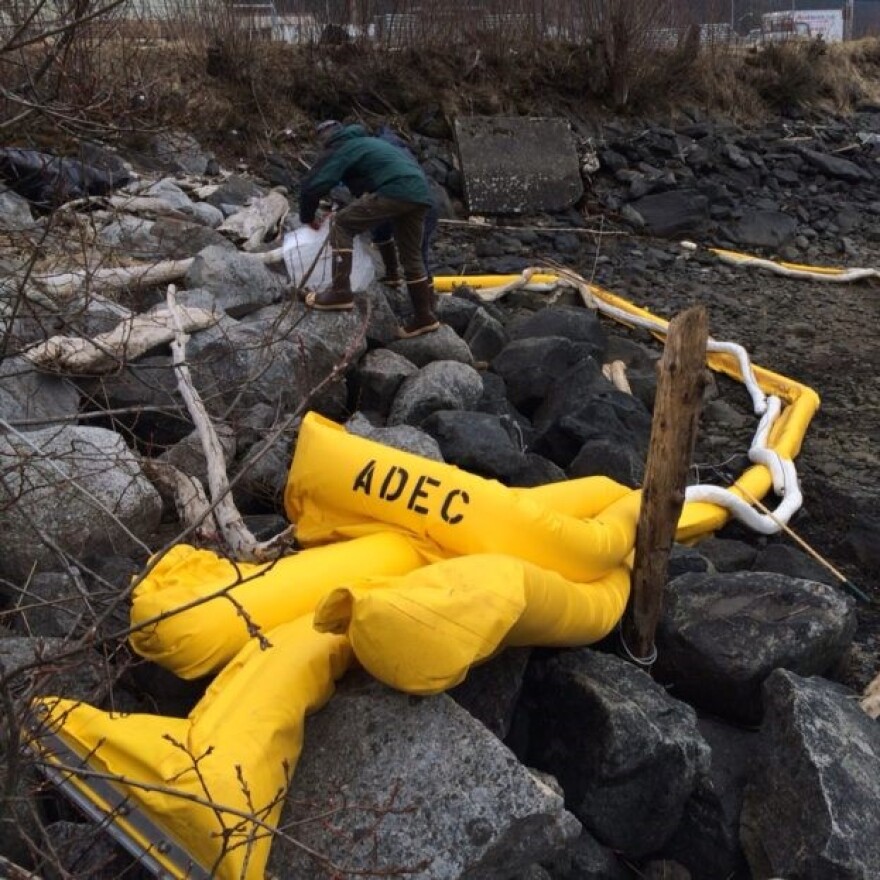Alaska’s petroleum-based economy means there are many opportunities for toxic petroleum-based spills.
At least 80 percent of the contaminated sites that the state’s Department of Environmental Conservation deals with, have petroleum products in them.
Now, the Department is making moves to update the decades-old protocols it uses when petrochemicals leak into the soil and water.
In late November, about 30 people gathered in a conference room at the Alaska Department of Environmental Conservation’s Juneau headquarters. They were the first to hear about the Department’s plans to update its regulations for cleaning up petroleum spills.
Sally Schlichting who handles policy and regulation for contaminated sites for the DEC, ran the meeting. She said the overhaul is overdue.
“The last time we looked at petroleum specifically was in 1999. So it’s been quite a long time. It’s been about 17 years,” she said.
The regulations she oversees cover spills all along the pipeline route from oilfields to gas stations to home heating oil tanks.
Schlichting said her department wants to update the cleanup levels to reflect more current science on the toxicity of petroleum.
Petroleum cleanup is complex. Things like jet fuel, heating oil and gasoline are made up of hundreds of compounds and calculating risks to human health is tricky. And Schlichting said, in the decades since the levels were last tweaked, they’ve discovered some oversights.
“For example, in our groundwater, our cleanup levels, in the past, had not accounted for the risks to children from consuming and being in contact with that groundwater that’s contaminated,” Schlichting said.
So the department is holding a series of scoping meetings. They’ve reached out to consulting companies, state agencies from around the country, the oil industry. They’re taking comments through mid-January. Then they’ll go back to the drawing board.
At least one environmental consultant in Palmer plans to weigh-in.
Ralph Hulbert said he has clashed with DEC in the past because the complex calculations they require for petroleum cleanup in soil and groundwater don’t factor in what it would take to respond to a spill.
“They do not like to consider the risks of these responses and what you have to do to clean it up,” Hulbert said.
Hulbert said some of the cleanup methods cause risks that are worse than what a spill could ever have caused.
He also thinks the state doesn’t do enough to ensure that cleanup costs are reasonable for homeowners and companies who’ve had spills.
Schlichting said DEC gets a lot of comments that their cleanup levels aren’t scientifically based. During the Juneau meeting, people said they were concerned that more complex approaches to cleanup would be prohibitively expensive.
Whatever the department decides to do, it could take awhile.
After the scoping process ends, the department will spend time researching the input they’ve gotten. Then they’ll either develop draft regulations and go out for public comment or hold a few workshops.
“We’re looking at a year, maybe even two years,” she said.
And while it’s not clear what the new regulations will look like, Schlichting said it’s likely that the cleanup levels for some things, like diesel and gasoline, will probably become more stringent.


